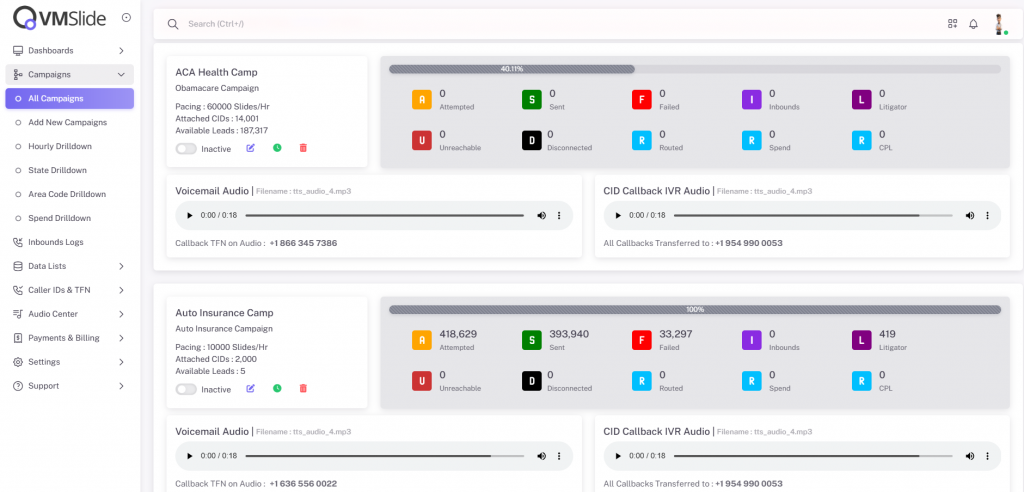Key Takeaways
- Core SEO Asset: A Google My Business profile is crucial for local visibility and credibility.
- Deletion Risks: Removing it can cause rank drops, lost reviews, and erode trust.
- Negative Reviews: Address complaints directly and encourage happy customers to leave positive feedback.
- Alternatives: Mark your location as “closed,” merge duplicates, or update data rather than delete.
- Watch Consistency: Maintain accurate Name, Address, and Phone details across all directories.
- Data Backup: Save reviews and Q&A before making major profile changes.
- Ongoing Monitoring: Track rankings and website traffic to adapt quickly.
- Professional Help: Consult local SEO experts for strategic solutions that often outweigh deletion.
When it comes to local visibility, a Google My Business (GMB) profile is an invaluable asset. It helps your business stand out in local search results, showcases essential details like operating hours and contact information, and provides a platform for customer reviews. But what happens if you decide to delete your GMB listing? Will it solve certain issues, or might it end up damaging your online presence and local SEO? In this in-depth guide, we’ll explore the implications of removing your Google My Business profile, the potential consequences for search engine optimization, and more strategic alternatives to consider. By the end, you’ll have a clear understanding of the best course of action for your local business—whether you’re grappling with negative reviews, outdated details, or other challenges that might make you consider removing your listing altogether.
Understanding the Role of Google My Business in SEO
Before delving into whether deleting your GMB profile might hurt your SEO, it’s crucial to understand why this tool is so important to begin with. Think of GMB as a digital storefront that appears in local search results (like those “near me” queries) or on Google Maps. Here’s why it matters:
- Local Search Visibility
When users type in industry-related terms plus a location—for instance, “Italian restaurant in Boston”—Google’s search results often showcase a “Local Pack.” This valuable real estate spotlights nearby businesses, with their addresses, phone numbers, and reviews. Claiming and optimizing your GMB profile increases your chances of appearing here. - Customer Engagement
GMB features like the Q&A section, posts, and reviews allow direct interaction with potential and existing customers. This engagement can foster loyalty and enhance your brand reputation. - Trust and Credibility
A robust, active listing with high-quality photos, relevant keywords, and consistent business information signals professionalism. Users often rely on these cues to decide whether to visit your physical location or explore your website further.
Given these benefits, it’s easy to see how GMB influences local SEO. The platform ties directly into Google’s ecosystem, and removing your profile can raise questions about your business’s legitimacy and existence.
Why Would Someone Consider Deleting a Google My Business Profile?
Despite the advantages, there are situations where a business owner might want to delete their listing. Some common reasons include:
- Business Closure or Relocation
If you’ve permanently closed a location or moved to a new city, you might think removing the old listing is the best way to avoid confusion. - Rebranding or Merging
A business undergoing a rebrand might opt to delete older listings to maintain a cleaner online presence. Similarly, a merger with another company may render a standalone GMB profile unnecessary. - Persistent Negative Reviews
Sometimes owners believe that deleting a listing with negative reviews can improve brand perception. Negative feedback can damage your online reputation, so the urge to “start fresh” is understandable. - Duplicate Listings
Google frowns upon multiple GMB profiles for the same business location. This duplication can confuse algorithms and users alike. - Inaccurate Data and No Access
If someone else set up your GMB listing and you can’t gain ownership, you might consider deleting to avoid misinformation.
While these situations may make deleting seem like a quick fix, the solution isn’t always that straightforward. In many cases, there are better alternatives that protect, or even improve, your SEO and local visibility.
Impact on SEO: The Immediate Effects of Deleting Your Profile
So, does deleting a Google My Business profile hurt SEO? The short answer: very likely, yes. Let’s break down some immediate impacts:
- Loss of Local Search Presence
Without a GMB listing, your business becomes far less visible in local search results and Google Maps. This is particularly damaging if you rely on foot traffic or local clientele. - Reduced Trust Signals
GMB listings often serve as proof of a business’s physical existence, hours, and legitimate operation. Removing that verification can raise doubts about whether you’re still in business. - Decreased Customer Engagement
No GMB profile means no Q&A, Google Posts, or direct place for new customers to leave reviews. You lose a powerful engagement channel that can funnel leads and conversions. - Sudden Drop in Citations
If other platforms or directories cite your GMB data, losing that primary reference point can create inconsistency across the web. This inconsistency often confuses users and search engines.
In essence, deleting your profile can sever a key connection between your brand and Google’s local search features. This can manifest as a drop in search rankings, web traffic, and ultimately, revenue.
What About Negative Reviews? Handling Reputation Issues Without Deletion
Many business owners consider deleting their GMB profile to escape a barrage of negative reviews. However, removing the listing isn’t a guaranteed fix. Here’s why—and how to handle the situation more strategically:
- Online Reviews Are Everywhere
Even if you remove your GMB listing, negative reviews may remain on other platforms like Yelp, Facebook, or TripAdvisor. Focusing on holistic reputation management might be a better approach. - Respond Professionally
Demonstrate to potential customers that you care by addressing complaints. Offer solutions or invite the dissatisfied reviewer for a direct conversation. This professional approach can soften the impact of negative feedback. - Encourage Positive Reviews
Ask your satisfied customers for feedback. A stream of new positive reviews can outweigh the negative ones and recalibrate your overall rating. - Flag Violations
If certain negative reviews violate Google’s guidelines (like containing hate speech, spam, or blatantly false statements), you can flag them for potential removal.
Ultimately, working through the criticism shows transparency and commitment, which can elevate your brand reputation more effectively than hitting “delete” on your listing.
Deleting vs. Marking the Business as Temporarily or Permanently Closed
If your business location is genuinely no longer in operation or it’s moved elsewhere, you might think that deletion is the only path. However, you have other options:
- Mark as Temporarily Closed
Ideal for situations where you plan to reopen eventually—like undergoing renovations, dealing with seasonal closures, or waiting for a license. You retain your GMB listing’s history and reviews while signaling to customers that it’s a temporary situation. - Mark as Permanently Closed
If you’ve shut down for good or have relocated, marking the business as permanently closed can be more beneficial than outright deletion. The existing listing can direct people to the correct status, preventing confusion and accidental visits.
These methods preserve the link between your brand and its search history. Moreover, if your brand reopens under a new name or location, you can make edits to the existing listing without forfeiting past reviews and credibility.
Steps to Take Before Deleting Your GMB Listing
If you still believe deleting your GMB profile is the right move, proceed methodically:
- Backup Your Data
Take note of essential information, such as reviews, Q&A content, or photos. Once the profile is gone, retrieving this data may be challenging. - Update Other Online Directories
Ensure sites like Yelp, Apple Maps, Bing Places, or local chambers of commerce reflect the status of your business. Consistency across platforms is crucial for SEO. - Notify Customers and Clients
If you must remove the listing due to closure or relocation, inform your loyal patrons about the new address or the reason for closing. Use social media, email newsletters, or in-store signage to communicate changes.
Consult with an SEO Expert
An experienced local SEO professional can advise on whether there’s a more strategic approach than deletion. In many cases, an expert might help you repair or optimize the listing rather than remove it entirely.
Alternatives to Deletion: Strategically Managing Your GMB
Instead of deleting, consider these alternative strategies to maintain or improve your Google My Business profile:
- Claim and Update
If you’re dealing with incorrect data, claim the listing and correct it. Use relevant keywords in your business description and ensure your contact information, hours, and address are accurate. - Optimize for SEO
A neglected profile might be underperforming, rather than damaging your brand. Post regular updates, add new photos, and respond to reviews to signal to Google that you’re an active, credible business. - Merge or Consolidate
If duplicate listings exist, merge them instead of deleting one. This approach centralizes reviews and maintains any local ranking signals associated with both profiles. - Rebrand Properly
For businesses undergoing a name change, GMB offers tools to edit your existing listing’s name and details. Doing so preserves your review history and SEO momentum, which can be invaluable.
By focusing on enhancement rather than removal, you often end up with a stronger listing that can climb higher in local search results, drawing in more quality leads.
Monitor Your Local SEO After Any Major Change
Whether you delete your listing, mark it as closed, or simply make significant updates, keep a close eye on your local SEO metrics afterward:
- Search Visibility
Use tools like Google Search Console or dedicated local SEO software to track your rankings and impressions. A sudden drop can indicate you’ve lost valuable local visibility. - Website Traffic
Analyze website traffic to see if there’s a decline in local users. This might mean your new or updated listing isn’t fully optimized, or users are unable to find you via Google Maps. - Citation Consistency
Periodically run citation audits to ensure other online directories aren’t showing conflicting details. Tools like Moz Local or SEMrush’s listing manager can help automate this process. - Review Volume
Pay attention to review trends on other platforms. If you see a sharp decrease in feedback, consider encouraging satisfied customers to share their experiences elsewhere—especially if you removed your GMB presence.
Monitoring data allows you to catch any red flags early and adjust your strategy accordingly—minimizing SEO damage if you do decide to remove or significantly alter your listing.
Conclusion: Weighing the Risks and Choosing the Right Approach
So, does deleting Google My Business profile hurt SEO? For most businesses, the answer is a resounding “yes.” An active, accurate GMB listing is one of the most powerful tools at your disposal for driving local search traffic. Removing it can severely limit your reach, damage your credibility, and erase valuable reviews that you’ve built up over time.
Still, there are legitimate reasons for wanting to delete or remove a listing—such as business closures, relocations, rebrands, or persistent negative feedback. Yet even in these scenarios, solutions like marking your business as temporarily or permanently closed, merging duplicate listings, or actively working to respond to negative reviews are typically more beneficial routes. These methods maintain your brand’s connection to Google’s local ecosystem and preserve any positive momentum you’ve established.
Ultimately, the decision to delete or keep your GMB profile hinges on your business goals, current online reputation, and upcoming changes (like moves or rebrands). However, with a bit of knowledge and strategy, most businesses can transform a problematic or outdated listing into a valuable local SEO asset—without resorting to the nuclear option of deletion.





